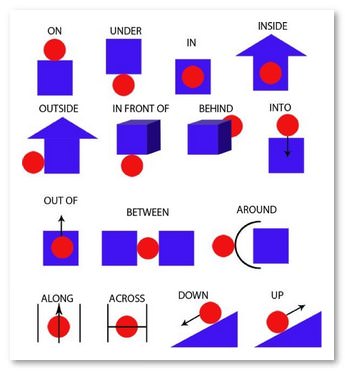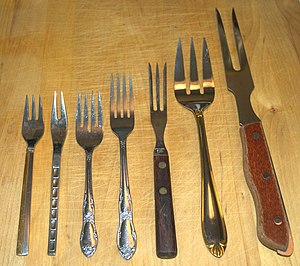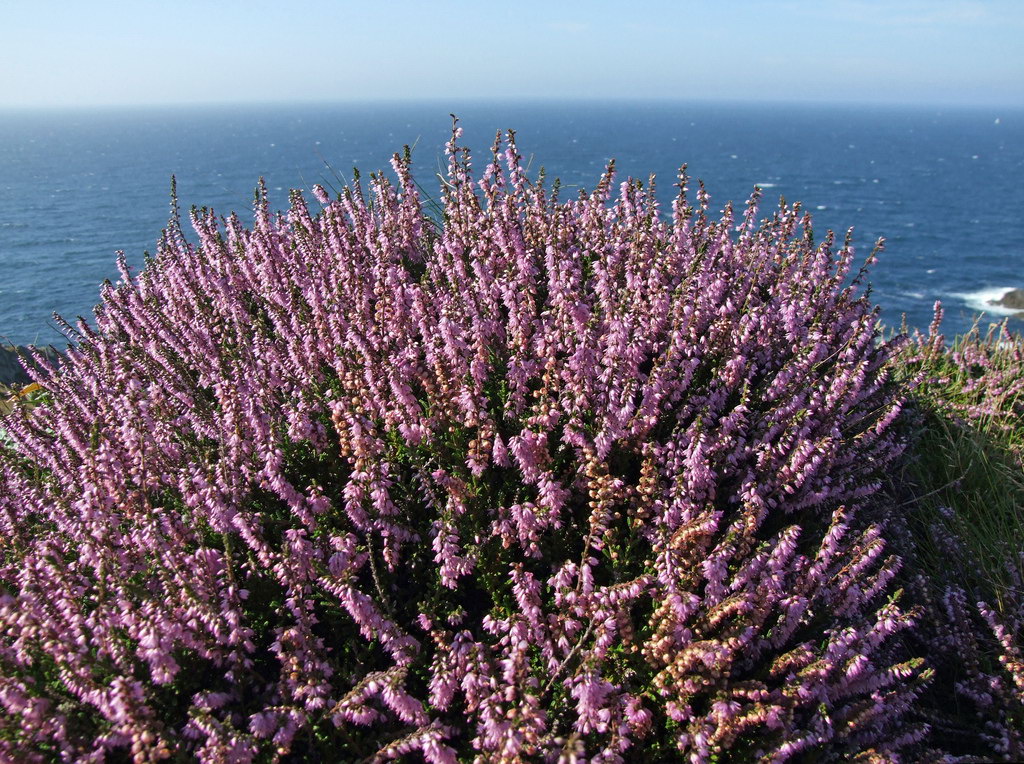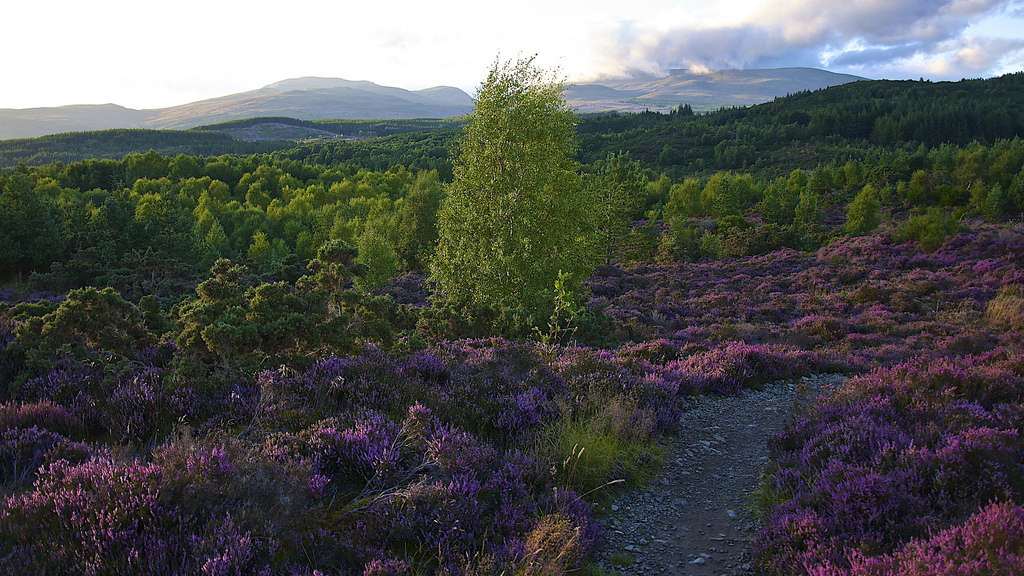http://www.homeenglish.ru/Booktwo.htm


1 — крок перший: абетка
A B C D E F G H I J K L M N O P Q R S T U V W X Y Z
a b c d e f g h i j k l m n o p q r s t u v w x y z
2 — крок другий: граємося ( з’єднайте великі літери з маленькими). Будьте уважні! =)))
Z L M Q P X N C B V K J H G F D S W E R Y T U I O A
m n b v c x z a s d f g h j k l p o i u y t r e w q
3 — крок третій: що бачимо, те й читаєме ( перекладати не обов’язково).
ten pen men top lip pin mop stop net internet not test lift left help dog start tennis sport robot kitten different dress drink frog ink lemon mistress visit vanilla vast veil vein villa zenana zebra
stop doll pot pond top spot spoil Tom stop lost soft fond on
ten pen bell left bed end test best sell met
4 — крок четвертий: на вашу думку, чому від усієї абетки залишилося тільки 9 літер?
a b c d e f g h i j k l m n o p q r s t u v w x y z
a c g j q u w x y
5 — крок п’ятий: читання літери «а» в закритому складі. В таких коротеньких словах ця літера читається «е». Оберіть слово, яке знаєте добре, наприклад, «бетмен», «бізнесмен» — «мен» = мужчина, чоловік = man і запам’ятайте, як воно читається і як читаються подібні короткі слова з «а»:
at sat bat rat and lamp flat man stand sad fat dad rabbit
a bat a rat a lamp a flat a man a rabbit
a pen a bell a bed a test a set
6 — крок шостий: читання літери «g»; словосполучення.
dog pig big frog egg flag bag leg get glad gold golden gossip
a pig a dog a frog a flag a bag an egg a big dog a big frog
a big log a big pig a big doll a big pond a big bell a big rabbit a fat rabbit a big man a fat rat a big lamp a long test a big lemon
=)) а тепер спробуємо так: a pin and a pen a pig and a dog a bag and a pen an egg and a bag a big dog and a big pig a big pond and a bank a long test a bad bed a red lamp a red pen a red dress
7 — крок сьомий: речення! =))
It is a pen. It is a dog. It is a doll. It is a frog. It is a pig. It is a bag. It is a rabbit. It is a big dog. It is a big frog. It is a big pig. It is a big rabbit. It is a red lamp. It is a big egg. It is a big doll.
Спробуємо запитання? =) Зверніть увагу на перші два слова =))))
It is a dog. It is a doll. It is a bag. It is a pen.
Is it a dog? Is it a doll? Is it a bag? Is it a pen?
І заперечення. Просто потрібно на відповідне місце поставити слово «not» =))
It is NOT a pig. It is NOT big.
Ну, і так далі. Можете в усі речення кроку №7 підставити слово «not» — будете мати заперечення. Поміняєте місцями перші два слова — будете мати запитання. Удачі! =))
8 — крок восьмий: буква «e» в кінці слова НІКОЛИ не вимовляється, але вона дуже важлива ( про це згодом)
little apple
It is not an egg. It is not a doll. It is not a bell. It is not a top. It is an apple. It is not little. It is big. Is it a doll? Is it a pond? Is it a pin? Is it an apple? Is it little? Is it big?
А тепер читаємо все, що Вы вже вмієте. Можно навіть на час. Почали? =))))
A big lamp, a little map, a bad apple, a little lamp and a pen, a little map and a man, a little fat pig, a sad man, a pig and a dog, a man and a little flat, a top and a little doll, a bag and a map, an egg and alittle apple, a big dog and a big pig, a little bad apple and a bad egg, a little pen and a little bag, a little flag and a big top.
Теперь буква «e»в кінці слова. Не читаеться ніколи, але пишеться часто і докорінно міняє значення слова.
Наприклад:
pin ( шпилька) — pine (сосна),
sit ( сидіти) — site ( місцерозташування, веб сайт ),
bit (частка) — bite (кусати),
lin ( обрив) — line ( лінія),
not (ні) — note( запис, нотатка) ,
fin (плавник ) — fine ( хороший),
win ( перемогти) — wine ( вино).
Звісно, це далеко не всі приклади. Запам’ятати потрібно наступне: літера «e» не читається ніколи, але перша голосна в слові вимовляється так, як вона называється в абетці: i=ай: pine / line / nine /mine /fine / life / knife / five / drive /bike / like / time / smile /nice / slice
a=ей: name / Kate / state / late / table / cake / lake / snake / rake / take /wake / wave / sale / pale / tale / plane /
Це правило не розповсюджується на слова — live = жити , love = любити.
9 — крок дев’ятий: у більшості випадків буква»c» читається як «k», а якщо є «k» ( ck) поруч, тоді вже точно не помилитесь.
Cat, a cat, a cap, can, cab, camel, cannot, capital, carrot, clap, clatter, clever, coin, old, collect, contain, cord, corn, cost, crab, crib, crisp, crop, cross, doctor, fact, insect, second, October
АЛЕ: перед літерами «i / e /y» літера «c» читається як «s»:
pencil, city, ceiling, cinnamon, civil,
10 — крок десятий: ck = k ( те, про що ми вже говорили в попередньому пункті):
back, black, brick, cock, clock, o»clock, sock, sack, sick, stick, deck, kick, lock, neck, pack, pick, rock, rocket, pocket
11 — крок одинадцятий: буква Нh = х
a hat, a hand, a hen, his, his lamp, his dog, his apple, his fat pig, his little hand, his left hand, his cat, his clock, his cock, his bag, his back, his left leg, his cap, his pocket.
А тепер — швидо і чітко: is, his, has, him, dress, rat, fill, ill, soft, little, tram, drop, red, still, crop, rest, hot, press, apple, sit, fond, sent, hand, test, cap, mist, lost, step, can, lift, doll, pen.
1) bat / cat / at / hat / can / tan / tap / cap /
2) a / an / and / hand / hat / hot / hop / hob
3) hand / left hand / big hand / a flag in a hand / a pen in a hand / a book in a hand /
12 — крок дванадцятий: «have» чи «has»? Я, ти, він, вона, ми, ви, вони, яблука, ляльки, собаки, книги, сонце, батьки, музика, метелик… Як разібратися? Пам’ятаєте «is»? Це коли чогось тільки один предмет. «Has» = хтось один щось має: He has… She has…
I have a big lamp. I have a little map. I have a red apple. I have a pig and a dog. I have a top and a doll. I have a bag and a map. I have an egg and an apple. I have a sad dog. I have a big doll. I have a fat pig. I have a red hen.
Bill has a dog. His dog is big. He has a big dog.
Bob has a cat. His cat is little. He has a little cat.
Sam has a rabbit. His rabbit is fat. He has a fat rabbit.
Tom has an apple. His apple is red. He has a red apple.
Dan has a pen. His pen is bad. He has a bad pen.
Ann has a dress and a hat. Ann has a red dress and a red hat.
13 — крок тринадцятий: артикль the
Немає в нашій мові ані такого слова, ані такого звуку. Доведеться вам пригадати дитячу дражнилку: своєму опоненту, коли вже закінчилися аргументи, ми просто показували язика. Ні, всього язика не потрібно, а тільки кінчик. І одночасно вимовляємо звук «з» . =)) Смішно, незвично і … лоскотно. Але чужиі традиції потрібно поважати. І мовні також. Дуже добре про це каже Роні: https://www.youtube.com/watch?v=LTIGndXwCXk
Можливо, ви — новачок і не знаєте, ЩО вона говорить, але ЯК це потрібно вимовляти, вам буде навіть даже зрозуміло =))) Обов’язково спробуйте разом з Роні всі приклади вимовляти вголос.
А тепер перейдемо до читання.
It is a doll. The doll is big. / Чому у першому реченні є «а», а у другому вже «the»? Тому що в першому ми про ляльку згадуємо вперше, а у другому вже точно знаємо, про яку саме лялку йдеться./
It is a kitten. The kitten is little. The kitten is not red. It is not black. It is grey.
It is a cock. The cock isn’t little. The cock isn’t black. It is red.
This / That ( Цей / Той)
https://www.youtube.com/watch?v=Xv1npxE0Vq0
This is a desk and that is a clock.
This desk is big and that clock is little.
This is a big red dog and that is a little black dog.
This is a pen and that is a pencil. This pen is red and that pencil is black.
This top, that pond, this bag and that pencil, this big doll and that little doll, this red dress and that red hat, this black cock and that red hen, this big dog and that lottle kitten, this left hand and that left leg, this cock, that sock, this clock, this hen, that clock, that cap and this dress, this cat and this dog, this desk and this bag.
https://www.youtube.com/watch?v=25HeM_ppYDk
https://www.youtube.com/watch?v=6b28b5l64WM
14 — крок чотирнадцятий: сполучення «all» читається «ол»:
all — tall — ball — small
This is a ball. The ball is small. The ball is red.
This is a man. The man is tall. The man is at the desk.
This is Ann. Ann is little. Ann has a doll. The doll isn’t small.
This is Nick. Nick has a ball. He has a ball in his hand. The ball is small. It is red.
15 — крок п’ятнадцятий: літера Yy (уай)
Дуже цікава літера! В кінце слова вона завжди читається «и»:
happy, many, family, sorry, lorry, berry, copy, very, candy, Daddy, Mammy.
А на початку слова — «й»: yes, yesterday, yet, yard, year.
This is a family. The family is big and happy. Is this a family? Yes, it is. Is this a happy family? Yes, this is a happy family.
This is a lorry. The lorry isn’t small. The lorry is big. Is this a berry? No, it isn’t. It isn’t a berry. Is it a candy? No, it isn’t. It isn’t a candy. Is the lorry big? Yes, it is. The lorry is very big.
16 — крок шістнадцятий: буква w
Просто витягніть губи «дудочкою».
It is windy. It is very windy.
This is a window. The window is big. This is a wall ( читаем через «о», помните шаг 14?). This wall is big. That wall isn’t big. That wall is small. A ball is at the wall.
17 — крок сімнадцятий: літера «х» ( екс = читаємо «кс»)
This is a fox. It is red.
This is a text. It is big.
This is a box. It is big. A fox is in the box.The fox isn’t big. It is small and red.
A big box, a little box, a red box, a red fox, a bad box, a bad fox.
A big box and a big doll. A big doll is in a big box. It’s a very big box. Nick has a big red box. I have a little black box.
18 — крок вісімнадцятий: літера «u» ( ю)
Також з секретом: в коротеньких словах ( закритий склад) читається «а» :
nut, up, stand up, cup, bus, drum, plum, but, run, ugly, umbrella, under, unhappy, undress, upset, us, unbelt, duck, a big duck, a grey duck, a big grey duck in the pond.
It is a cup. It is a red cup. It is a big red cup. It is a big red cup with milk.
This is a nut. This is a big nut and that is a little nut.
It is a bus. It is a big bus. It is a big red bus. It is a big red bus to Kiev.
Little Tom can run. A dog can run and swim. A little boy can run and swim.
19 — крок дев’ятнадцятий: літера Jj (джей, читаємо «дж»):
jam, job, jump, jelly, jug, Jack, jackpot, Japan, Jazz band, jacket
20 — крок двадцятий: літера Qq ( к’ю )
Мало того, що ми називаємо її двома звуками » к+ю = к’ю, так вона ще і пишеться ЗАВЖДИ з літерою «u»: qu. Запам’ятайте цю парочку! =))
Quick, quickly, quilt, a big quilt, a big quilt on the bed, quack, aqualang, aquarellist, squirrel, quiz.
21 — крок двадцять перший: запитальні слова
What / Where ( що / де) і решта
Візьміть, будь ласка, дзеркальце і скажіть :»Що, що-о-о» і подивиіться на свій ротик — він круглий. А тепер скажіть: «What ( уот), wha-a-at». Так-так, ротик круглий. Вийшло? Добре! А тепер посміхніться:»Де, де, де-е-е». І знову англійською: «Where (уЕа), where, whe-e-ere».
Вправи: What? What is this? What is that? What is on the desk? What is in the box? Where is the dog? Where is the cat? Where is the man? Where can the cat sit?
А тепер — решта: why (уай = чому). До речі, про правопис. Пам’ятаєте дражнилку? «Чому? Тому, що кінчається на «у»!» От, англійське «чому» і закінчується на наше «у».
Те саме зі словом «хто» = who (ху). Обидва слова закінчуються на «о»
When (уэн = коли)
Which (уіч = який, котрий ( один з групи)
Але про них трохи пізніше =))
22 — крок двадцять другий: прийменники.

А тепер візьміть м’ячика, коробку і пограйте з друзями.
 Ще малюнки і віршики-загадки у розділі «Граматика»
Ще малюнки і віршики-загадки у розділі «Граматика»
23 — крок двадцять третій: сполучення «ow» ( aу):
town, flower, brown, down
This is a town. The town is not big. I live in a town.
This is a flower. It is yellow. It is big. This is a sunflower.
This is a brown dress. That dress isn’t brown. That dress is orange.
24 — крок двадцять четвертий: сполучення «ar»:
park, car, arm, scarf, yard, farm
A big park, a small yard, a brown scarf, a red carpet, a black car, a red dress and a red scarf, a big flat and a big carpet, a little yard and a big park, a little farm and a big lorry. His farm is very big.
This is a park. The park isn’t little. The park is big.
This is a car. The car is black. The car is near the park.
The park is near the yard. The car is in the yard. The car is red.
This is a farm. The farm is big. The farm is near the pond.
25 — крок двадцять п’ятий: сполучення «ch» ( ч) :
bench, kitchen, children, chick, chicken, cherry, chess, rich, match, switch
This is a cherry. The cherry is red. The cherry is big and red.
This is a kitchen. The kitchen is big. There is a big kitchen in this flat.
There are children in the yard. There are boys on the bench.
There are chickens with a hen. The chickens are little. The chickens are little and yellow. Three chickens are in the box.
https://www.youtube.com/watch?v=4azPSDq0uWg
https://www.youtube.com/watch?v=Wg6ReLLDYPE
26 — крок двадцять шостий: сполучення «sh» = «ш » :
https://www.youtube.com/watch?v=V__JP2QFLws
https://www.youtube.com/watch?v=KcfIbI_wY5Q
https://www.youtube.com/watch?v=V__JP2QFLws
Fish, fresh, shop, finish, shock, ship, sheep, dish, shelf, shark
This is a shelf. The shelf is long. The shelf is on the wall.
This is a shop. The shop is big. It is a supermarket. It is in the town. It is not far from the market-place.
This is a fish. The fish is big, The fish is fresh.
27 — крок двадцять сьомий: складіть словосполучення =))) Вони будуть правильні або смішні. Отже, всім буде весело:
a big fish
a bad man
a fat duck
a small pond
a sad rat
a tall hen
a red plum
a wet apple
a happy cherry
a fresh family
28 — крок двадцять восьмий: сполучення -ir- / -ur- / -er-.
Шорти = шОрти = чітко звучить»о» : short = короткий, shorts = короткі штанці.
А тепер звучить м’яке «шь»= shirt = чоловіча сорочка, Т- shirt = футболка, і далі: skirt= спідничка, пташка — bird, третій = third, first = перший
Так само: nurse, purse,curl, church, hurt, burst, turn.
І знову так само: serve, germ, herd, fern, verb, term, perfect.
29 — крок двадцять дев’ятий: зосередьтеся і… почали!


a short pencil, a short dress, a short way, a short day, a short lesson.
a little girl, a good girl, this girl, that bird, a little bird, a happy girl.
=)) Ви вмієти читати. Я щиро Вас вітаю! =))) ( Так-так, Вас, з великої литери, тому що Ви заслуговуєте на повагу, навіть якщо Ви — ще дитина. ) Вивчення іноземної мови — це кропітка, систематична праця і захоплююче заняття. А якщо виникають складноші — звертайтеся до словника, більше читайте. Як це робити, я вже десь писала на сайті =)) Погортайте. Можливо, ще щось цікаве впаде в око =) . =)) Нехай вам щастить на цьому захоплюючому шляху! Щиро бажаю Вам успіхів і удачі!
Ваша Діана Миколаївна Остачинська.
=)))))))))))) Вам понравится!
Ссылка к остальным сериям и текст диалогов — на укр. версии сайта.
Весь материал, все уроки, аудио — по ссылке:
http://begin-english.ru/audio/everyday-english/
http://begin-english.ru/audio/everyday-english/ee-1

Изучая этот урок, Вы научитесь:
http://ejka.ru/blog/stihi/9.html

Дни недели
http://za4itaika.ru/Pages/English-books/English_club.php
Читайте, наслаждайтесь и гордитесь своими успехами, и пусть эти книги станут вашими любимыми =))))
Мои любимые…

HEATHER ALE
A GALLOWAY LEGEND
From the bonny bells of heather
They brewed a drink long-syne,
Was sweeter far than honey,
Was stronger far than wine.
They brewed it and they drank it,
And lay in a blessed swound
For days and days together
In their dwellings underground.
There rose a king in Scotland,
A fell man to his foes,
He smote the Picts in battle,
He hunted them like roes.
Over miles of the red mountain
He hunted as they fled,
And strewed the dwarfish bodies
Of the dying and the dead.
Summer came in the country,
Red was the heather bell;
But the manner of the brewing
Was none alive to tell.
In graves that were like children’s
On many a mountain head,
The Brewsters of the Heather
Lay numbered with the dead.
The king in the red moorland
Rode on a summer’s day;
And the bees hummed, and the curlews
Cried beside the way.
The king rode, and was angry,
Black was his brow and pale,
To rule in a land of heather
And lack the Heather Ale.
It fortuned that his vassals,
Riding free on the heath,
Came on a stone that was fallen
And vermin hid beneath.
Rudely plucked from their hiding,
Never a word they spoke:
A son and his aged father —
Last of the dwarfish folk.
The king sat high on his charger,
He looked on the little men;
And the dwarfish and swarthy couple
Looked at the king again.
Down by the shore he had them;
And there on the giddy brink —
«I will give you life, ye vermin,
For the secret of the drink.»
There stood the son and father
And they looked high and low;
The heather was red around them,
The sea rumbled below.
And up and spoke the father,
Shrill was his voice to hear:
«I have a word in private,
A word for the royal ear.
«Life is dear to the aged,
And honour a little thing;
I would gladly sell the secret,»
Quoth the Pict to the King.
His voice was small as a sparrow’s,
And shrill and wonderful clear:
«I would gladly sell my secret,
Only my son I fear.
«For life is a little matter,
And death is nought to the young;
And I dare not sell my honour
Under the eye of my son.
Take him, O king, and bind him,
And cast him far in the deep;
And it’s I will tell the secret
That I have sworn to keep.»
They took the son and bound him,
Neck and heels in a thong,
And a lad took him and swung him,
And flung him far and strong,
And the sea swallowed his body,
Like that of a child of ten; —
And there on the cliff stood the father,
Last of the dwarfish men.
«True was the word I told you:
Only my son I feared;
For I doubt the sapling courage
That goes without the beard.
But now in vain is the torture,
Fire shall never avail:
Here dies in my bosom
The secret of Heather Ale.»

Вересковый мёд
(перевод С.Маршака)
Из вереска напиток
Забыт давным-давно.
А был он слаще меда,
Пьянее, чем вино.
В котлах его варили
И пили всей семьей
Малютки-медовары
В пещерах под землей.
Пришел король шотландский,
Безжалостный к врагам,
Погнал он бедных пиктов
К скалистым берегам.
На вересковом поле
На поле боевом
Лежал живой на мертвом
И мертвый — на живом.
Лето в стране настало,
Вереск опять цветет,
Но некому готовить
Вересковый мед.
В своих могилках тесных,
В горах родной земли
Малютки-медовары
Приют себе нашли.
Король по склону едет
Над морем на коне,
А рядом реют чайки
С дорогой наравне.
Король глядит угрюмо:
«Опять в краю моем
Цветет медвяный вереск,
А меда мы не пьем!»
Но вот его вассалы
Приметили двоих
Последних медоваров,
Оставшихся в живых.
Вышли они из-под камня,
Щурясь на белый свет, —
Старый горбатый карлик
И мальчик пятнадцати лет.
К берегу моря крутому
Их привели на допрос,
Но ни один из пленных
Слова не произнес.
Сидел король шотландский,
Не шевелясь, в седле.
А маленькие люди
Стояли на земле.
Гневно король промолвил:
— Пытка обоих ждет,
Если не скажете, черти,
Как вы готовили мед!
Сын и отец молчали,
Стоя у края скалы.
Вереск звенел над ними,
В море — катились валы.
И вдруг голосок раздался:
— Слушай, шотландский король,
Поговорить с тобою
С глазу на глаз позволь!
Старость боится смерти.
Жизнь я изменой куплю,
Выдам заветную тайну! —
Карлик сказал королю.
Голос его воробьиный
Резко и четко звучал:
— Тайну давно бы я выдал,
Если бы сын не мешал!
Мальчику жизни не жалко,
Гибель ему нипочем.
Мне продавать свою совесть
Совестно будет при нем.
Пускай его крепко свяжут
И бросят в пучину вод,
А я научу шотландцев
Готовить старинный мед!
Сильный шотландский воин
Мальчика крепко связал
И бросил в открытое море
С прибрежных отвесных скал.
Волны над ним сомкнулись.
Замер последний крик…
И эхом ему ответил
С обрыва отец-старик.
-Правду сказал я, шотландцы,
От сына я ждал беды.
Не верил я в стойкость юных,
Не бреющих бороды.
А мне костер не страшен.
Пускай со мной умрет
Моя святая тайна —
Мой вересковый мед!